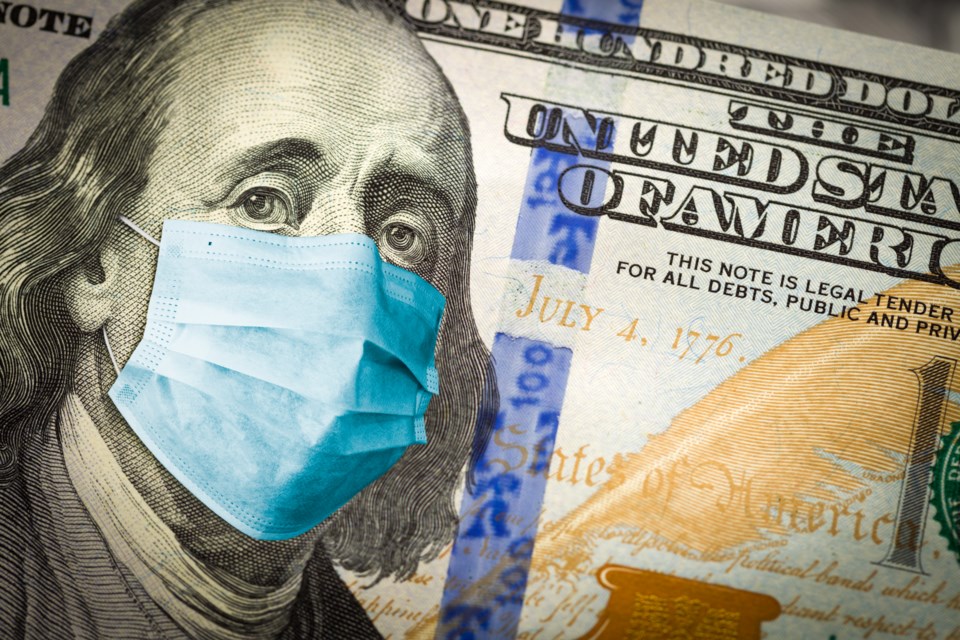Longmont officials are not sure if more federal dollars will trickle down to nonprofits and municipalities in the near future, even after President Donald Trump this week signed a $900 billion COVID-19 relief package aimed at helping struggling Americans through the next stage of the virus.
“As far as the next round of possible funds from the federal government, there is no carve-out for municipalities at this time,” city spokesman Rigo Leal said in an email. “So we will be closely watching the details of how the funds will be distributed from the state.”
Given the uncertainty, at least one local nonprofit organization isn’t banking on federal help to carry on in 2021.
Outreach United Resources Center Executive Director Marc Cowell said the nonprofit will concentrate on fundraising to keep money flowing and services operating at least through the first few months of 2021. He said there is too much uncertainty to count on any more federal COVID-19 help.
“Because it is extremely difficult to predict what is around the corner during this pandemic, we have taken the approach that we shouldn’t expect future CARES funding,” Cowell said. “Consequently, our staff and board have invested a lot of time and energy in fundraising. Because of these efforts and the incredible response from the community, we are well-positioned to continue to provide much-needed support to the community for the next couple months.”
Coronavirus, Aid, Relief and Economic Security, or CARES, Act funding kept staff members at the OUR Center’s Aspen Center from being furloughed during the three months the child care center was shuttered, Cowell said. The closure led to a significant drop in revenue, he said.
“Fortunately, they were furloughed for only two weeks and we were able to re-open on July 1,” Cowell said.
The CARES Act also provided funds for businesses and local governments to help weather the COVID-19 outbreak.
Longmont — through a partnership with Bounder and Weld counties and the state — this summer received $4.3 million from the $2.2 trillion federal coronavirus relief package passed in March and spent much of it on helping residents pay their utility bills, awarding grants to aid local businesses and supporting nonprofits, according to Leal.
Among the areas to which the funds were directed were:
- $1.2 million for organization readiness and safety, which included extra cleaning for public facilities and laptops for city staff to work from home and any personal protective equipment not funded through the Federal Emergency Management Agency.
- $1.6 million for business assistance, which included a restaurant voucher program, costs to create expanded outdoor restaurant space on Main Street and grants to child care providers. Also included are business assistance grants, for which the city received 182 applications for a total of more than $2 million. There is $1.1 million available for the Boost Longmont Business grants program, according to the city. Recipients of grants have not yet been announced.
- $1.2 million for individual assistance, which included utility billing assistance grants, and digital divide outreach.
- $182,000 for direct assistance grants to nonprofits to continue critical work in the community.
By the end of January, the city hopes to provide information on how many individuals and businesses were served by the CARES funding, Leal stated.
This year’s stimulus funding helped families survive the economic fallout from the pandemic, Cowell said.
“Unfortunately, in many cases that assistance fell significantly short of the needs of many households who have been and continue to be devastated by this virus and then resulting closures throughout the community,” he said.
Congress, meanwhile, is wrangling over the size of stimulus checks for individuals included in the new relief measure after Trump urged the amount be increased from $600 to $2,000.
In addition to stimulus checks, the relief package renews some programs that provide aid for households and small businesses hurt by the pandemic.
The bill renews the Pandemic Emergency Unemployment Compensation, or PEUC, which provides additional unemployment aid for people who have exhausted their state benefits. The unemployed for 11 weeks will get a $300 hike in federal payments under the $900 billion stimulus deal. The amount is half of the earlier federal boost, which ran out at the end of July, according to CNN.
The measure also renews the Pandemic Unemployment Assistance, or PUA, program to help gig workers, contractors and others who don’t qualify for traditional jobless benefits.
The two programs will help as many as 14 million Americans, according to The Hill, an online news site that covers national affairs.
Because Trump did not sign the stimulus measure until Sunday, there was concern some people would lose a week of benefits from the programs, which expired on Saturday. However, in a statement the U.S. Department of Labor said it does not anticipate claimants will miss a week of benefits due to the timing, CNN reported.


